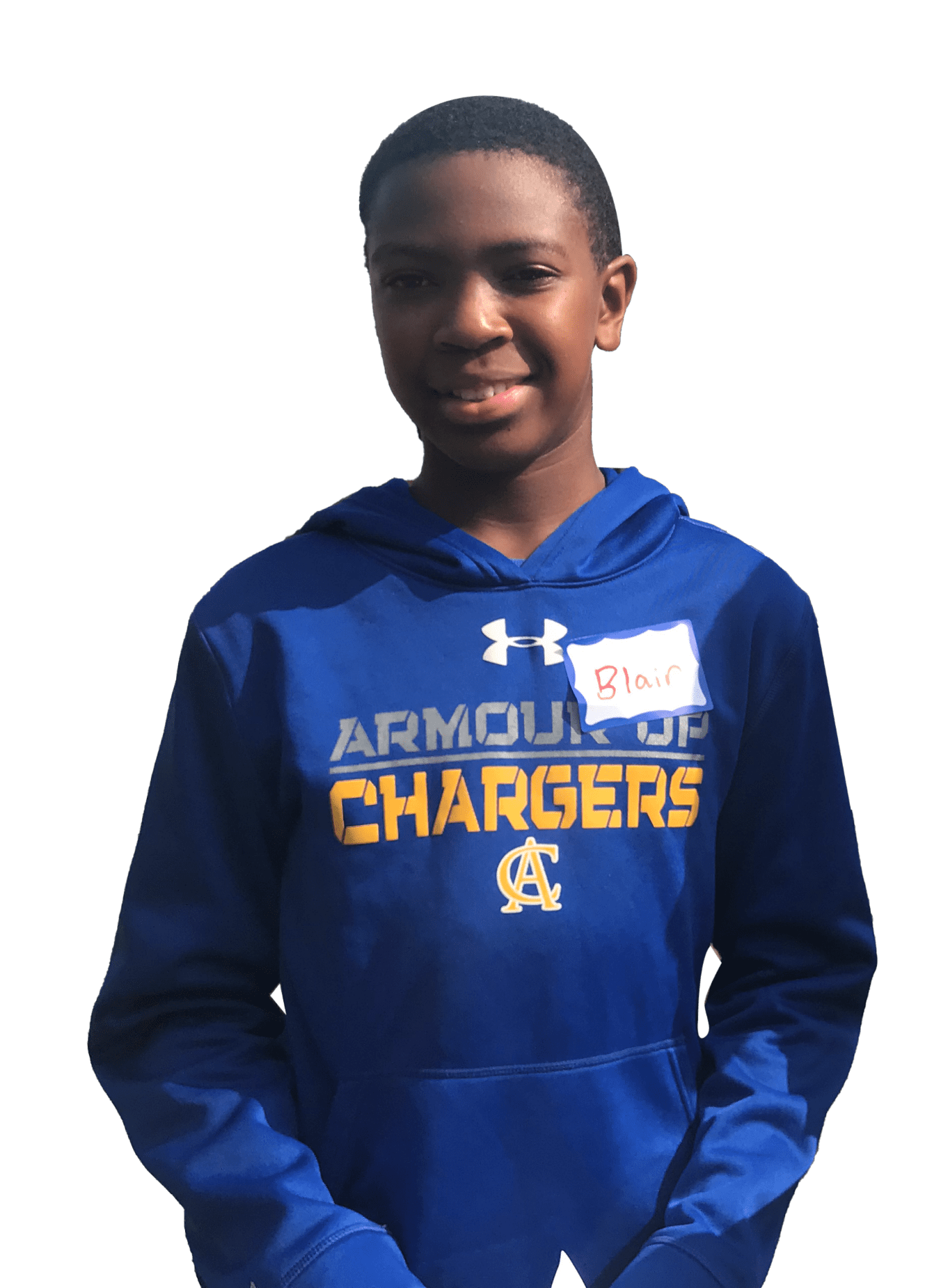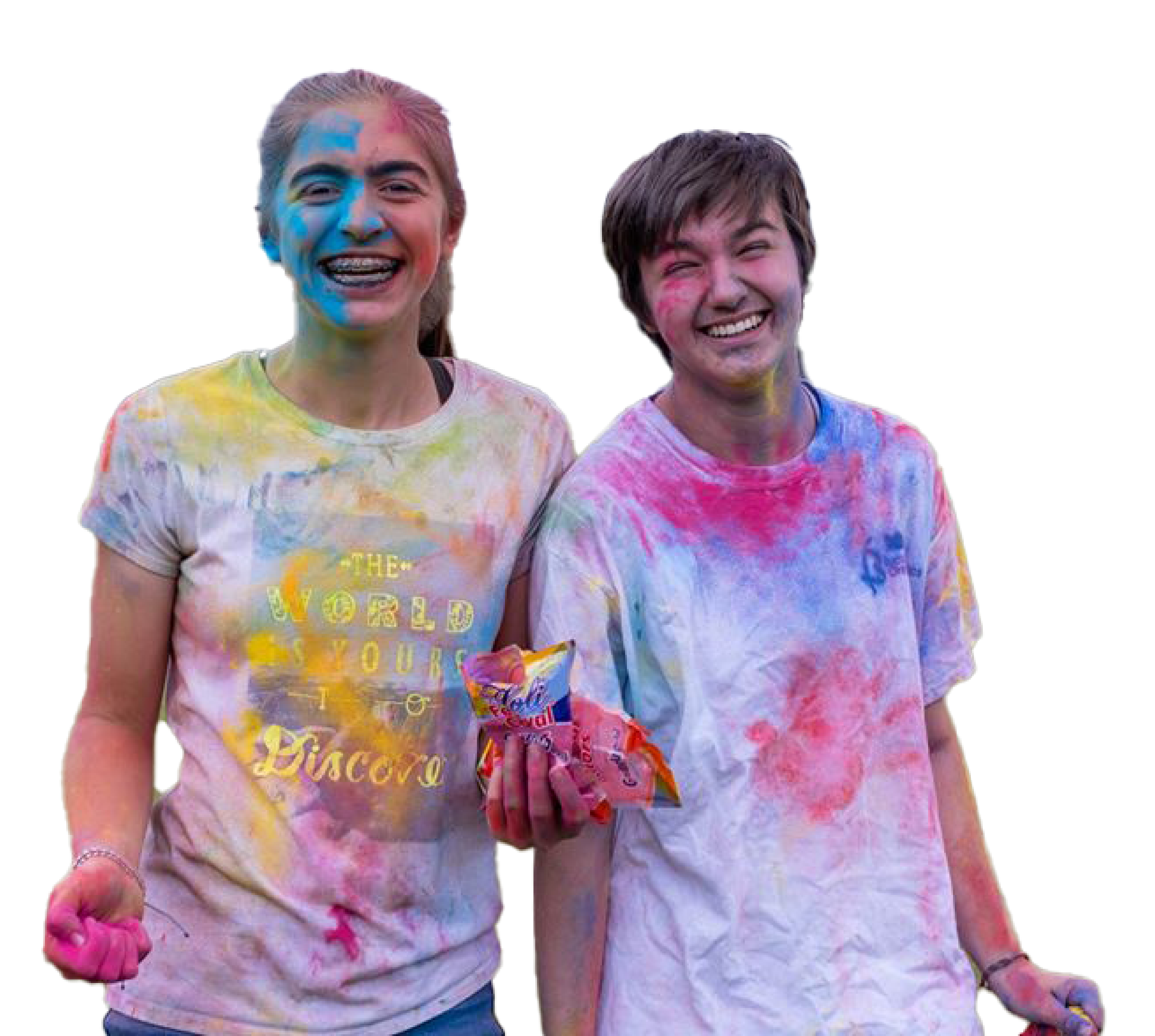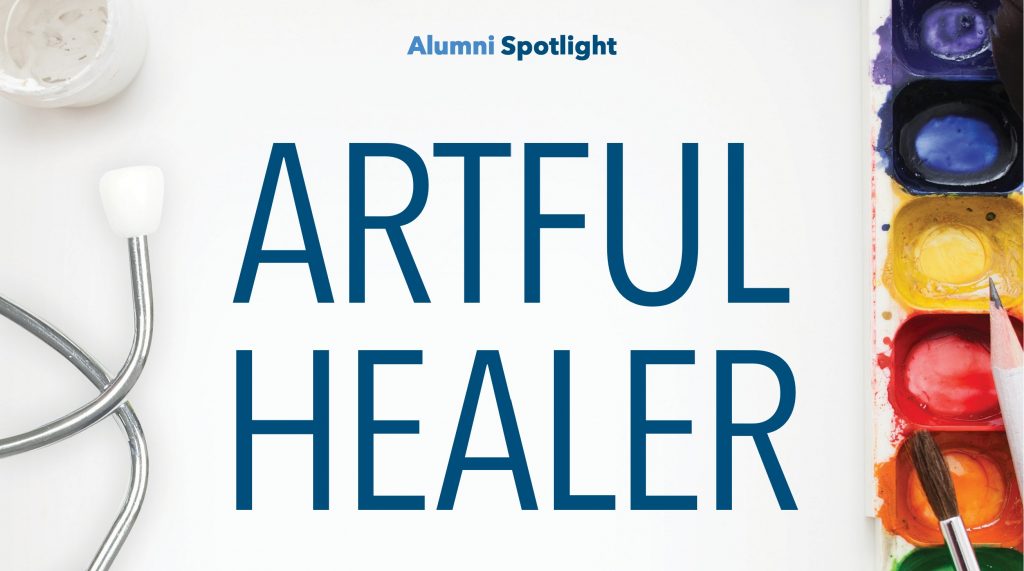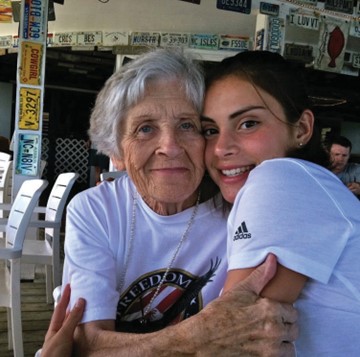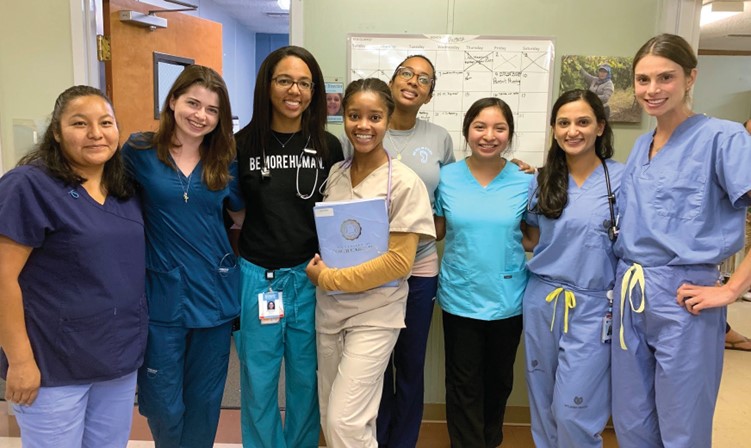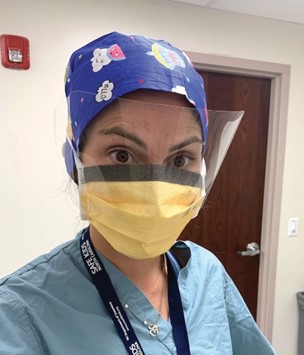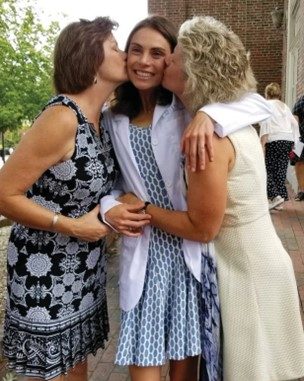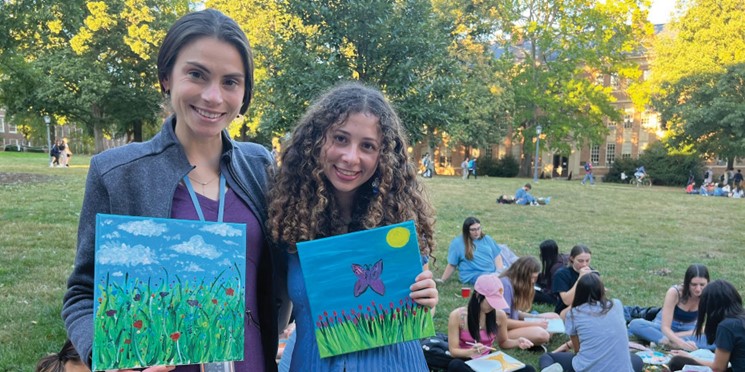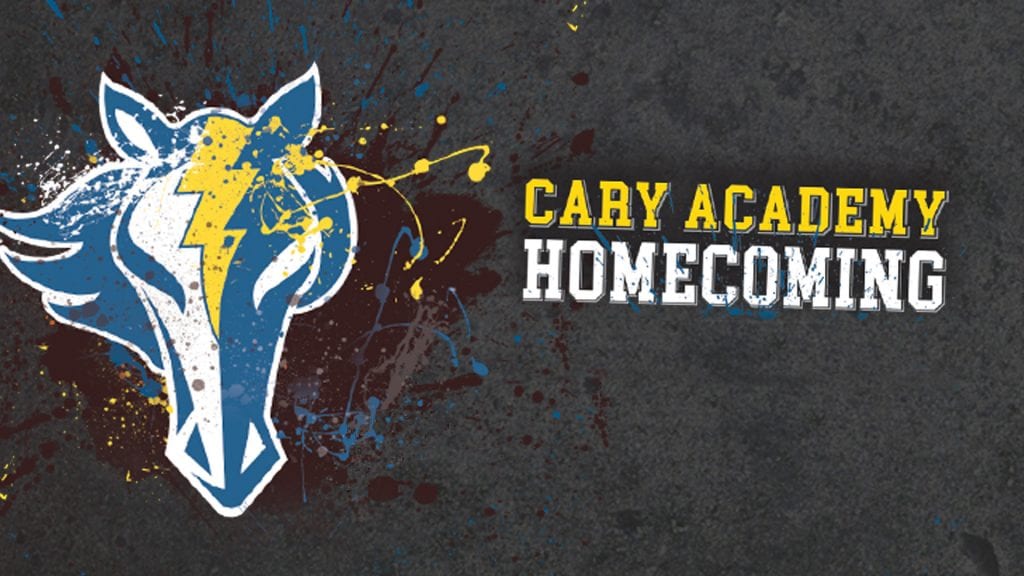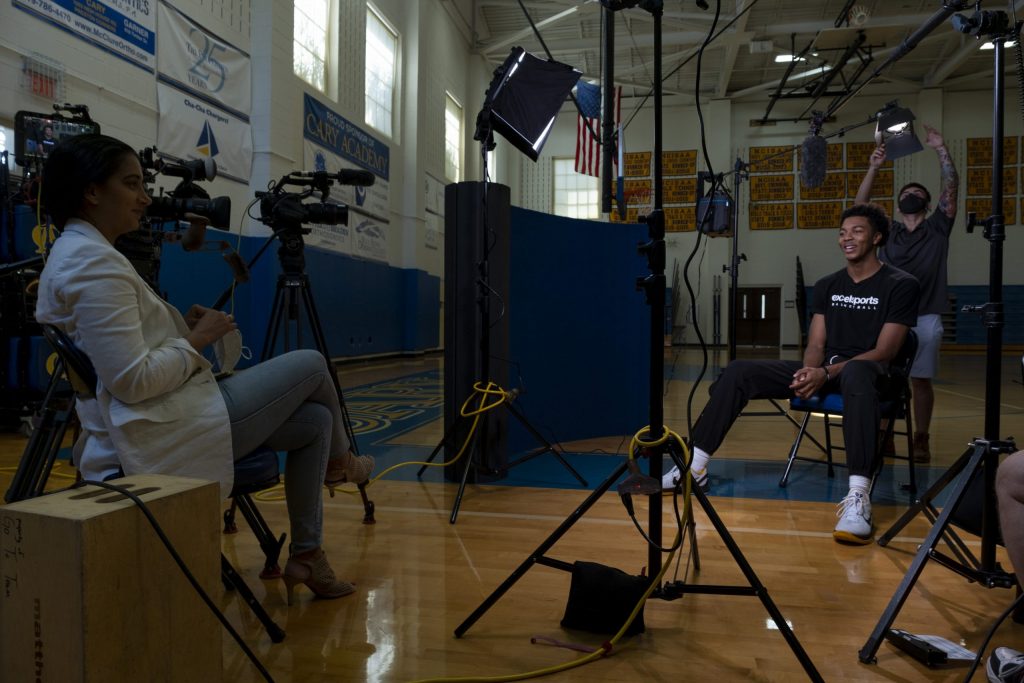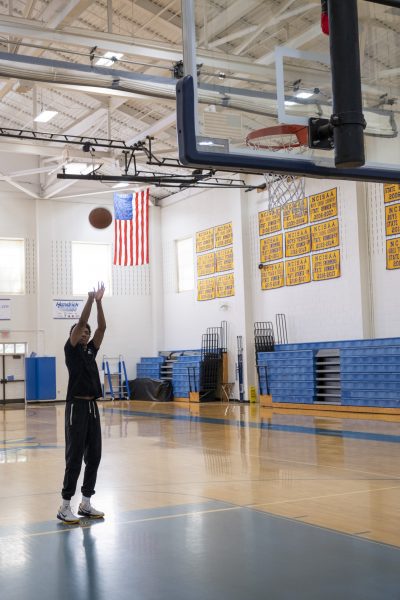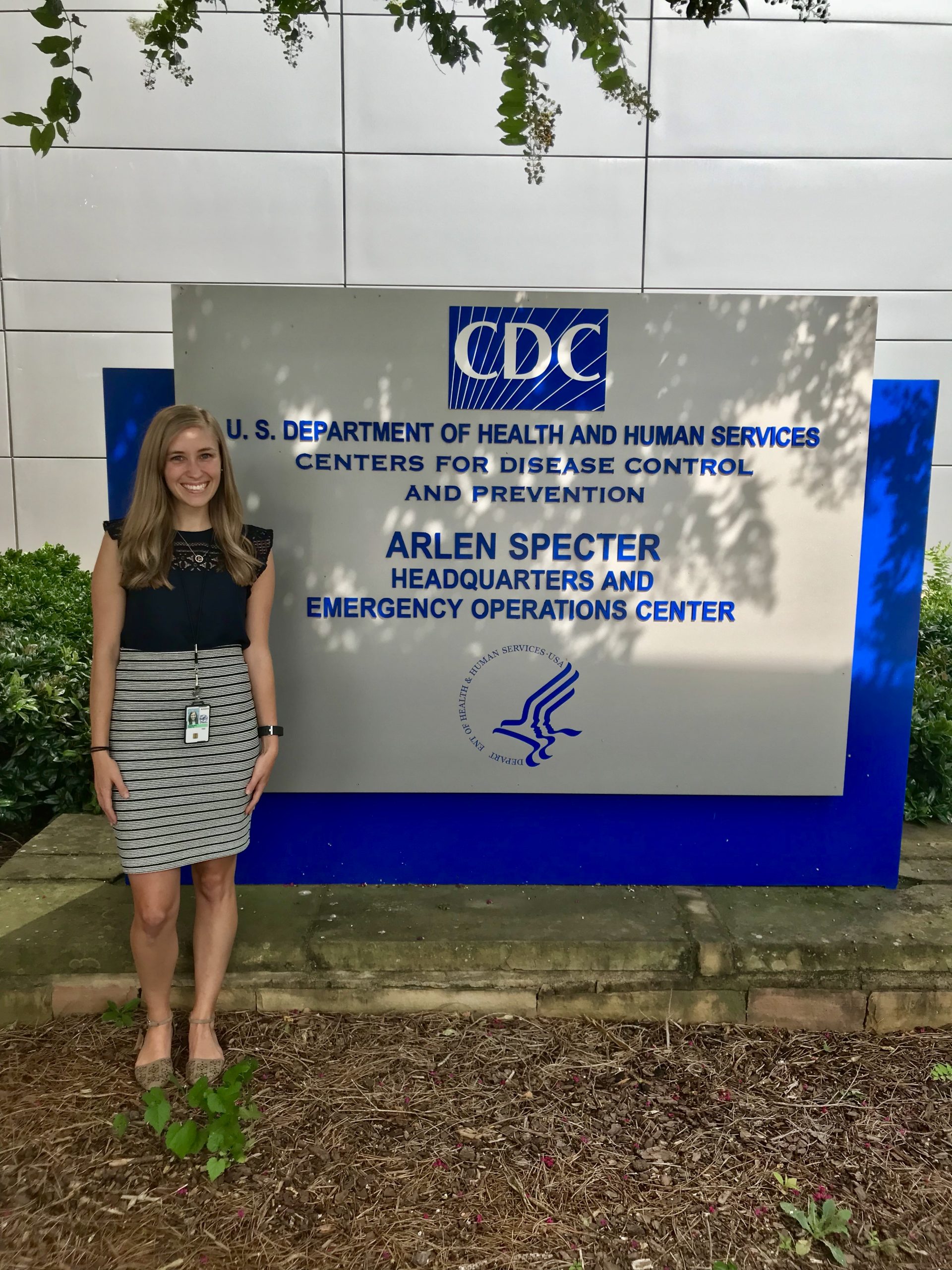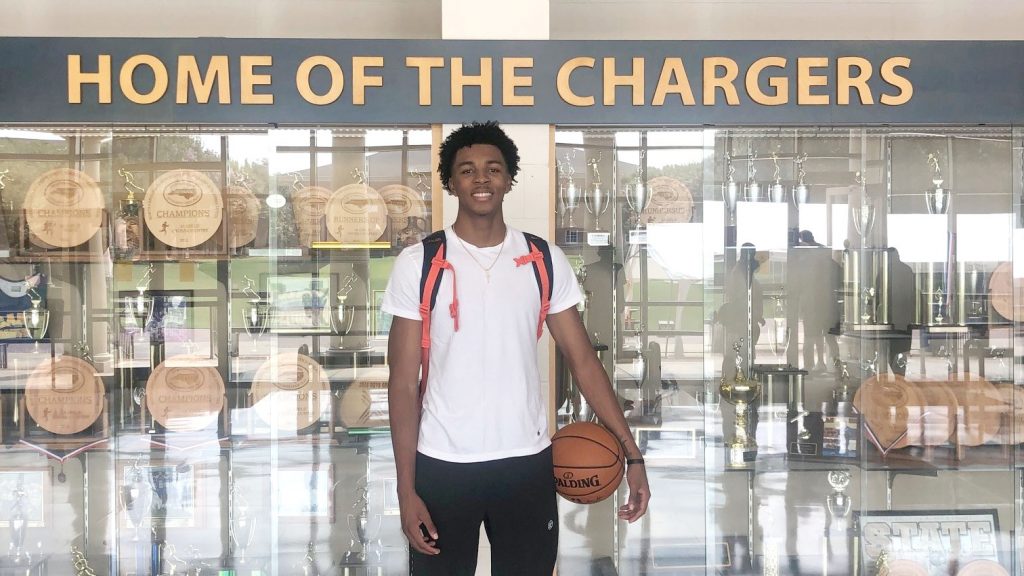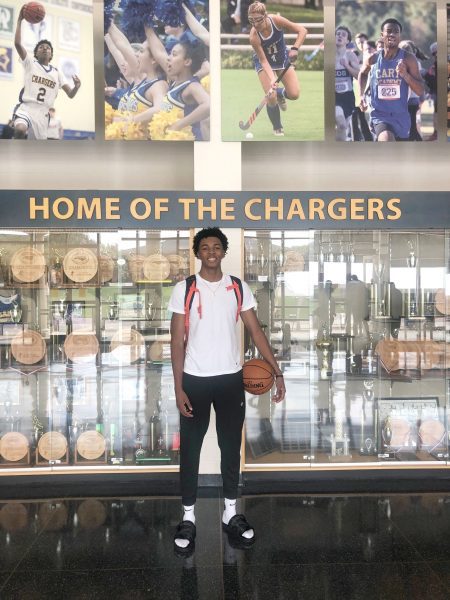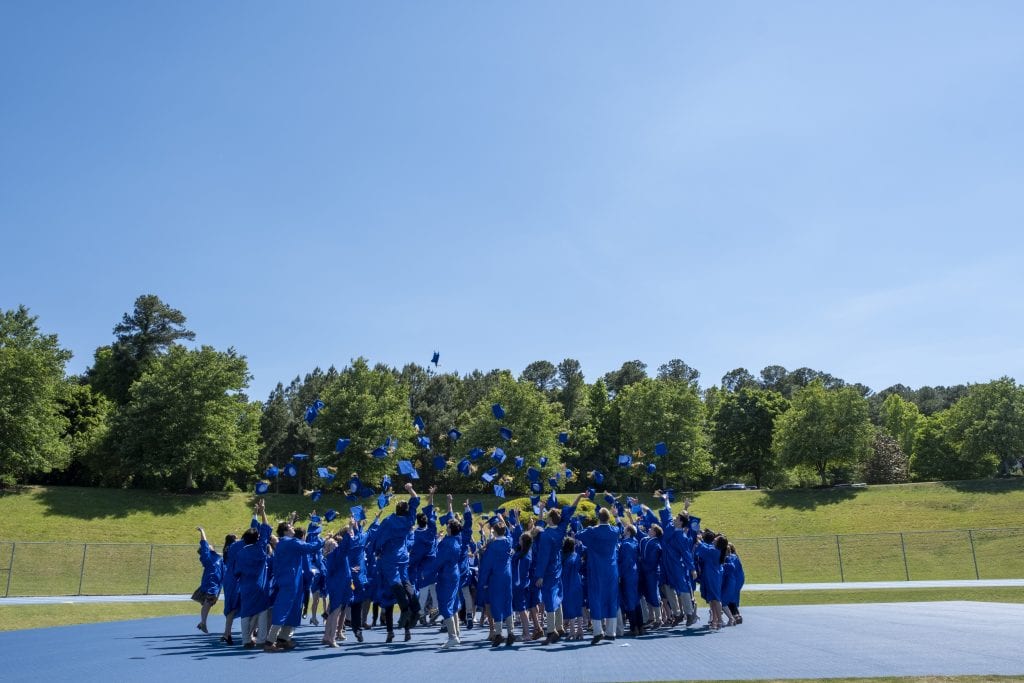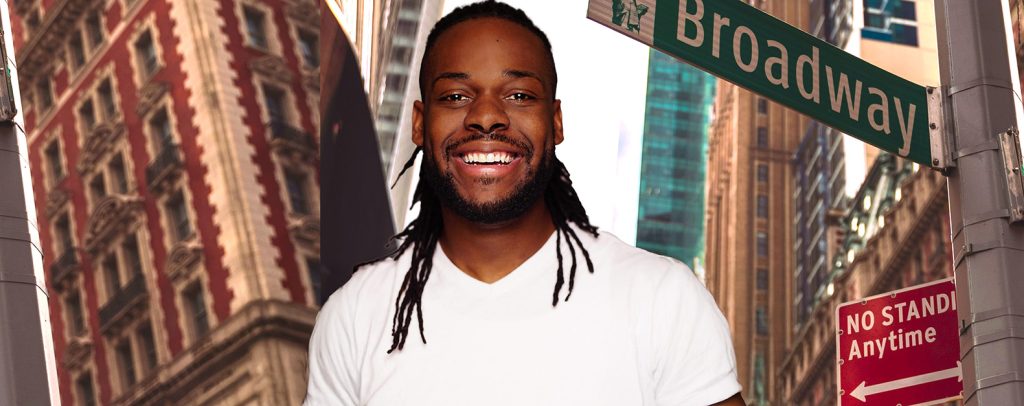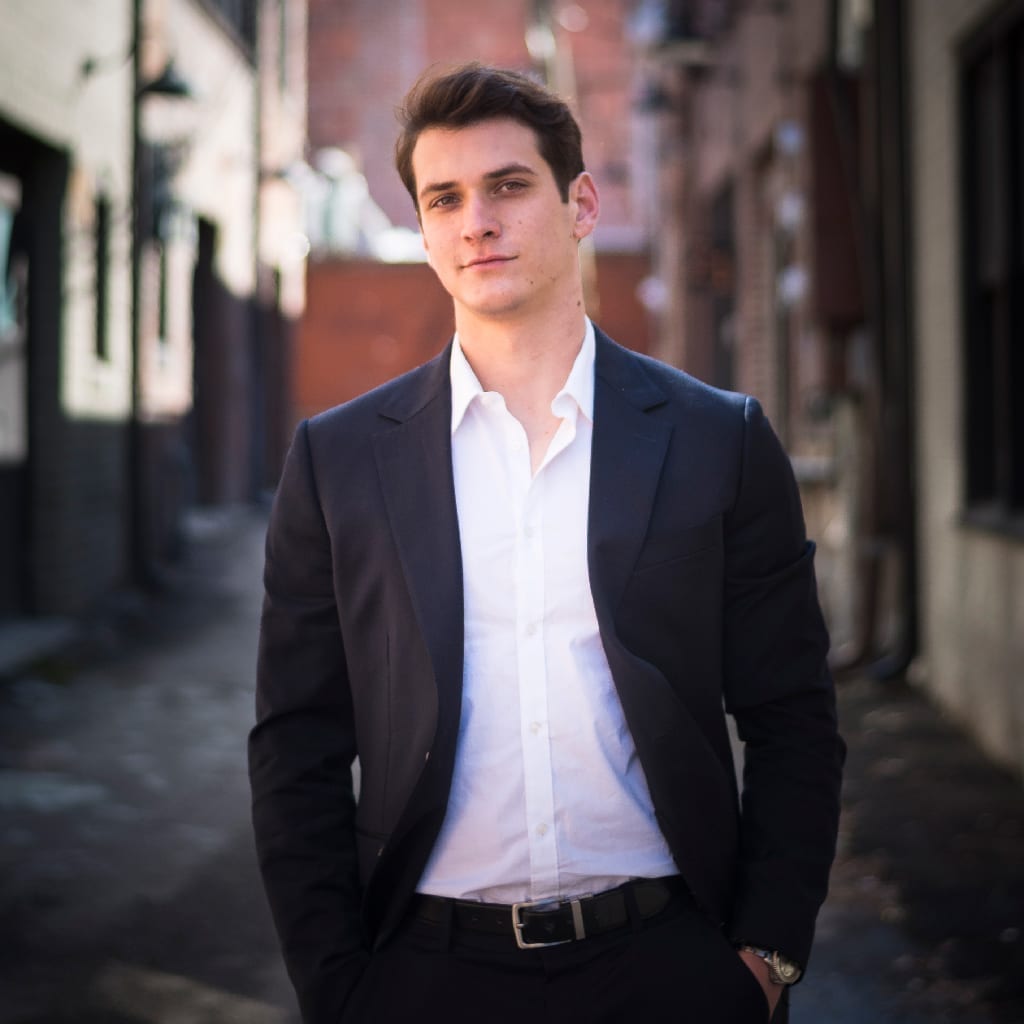One of Broadway’s rising stars, Aaron Harrington ‘10 has accomplished in just a few short years what some actors might not in a lifetime. Now, having landed two major leading roles, one alongside a Grammy-nominated cast, Harrington eagerly awaits a return to the stage in a post-COVID world. He’s impassioned and ready to take on another big role—as an influencer activist on a quest to transform the industry he loves.
Taking the leap
Humble, grateful, and quick to count his blessings, Harrington is the first to admit that his creative and meteoric trajectory is perhaps not the norm—a far-cry, even, from the trope of the long-suffering artist.
Graduating from Shaw University in 2015 with a degree in mass communications, Harrington initially pushed aside early dreams of a career in performing. He planned, instead, to parlay his love of music and theater into a marketing career in the entertainment industry. Like so many artists, he set his sights on New York City—ostensibly to pursue a job with a large public relations firm.
It was a daunting transition—a major leap of faith—made possible by his mother and uncle, who, unbeknownst to him, purchased and presented him with a one-way ticket to the city.
“They conspired to push me to follow my dreams,” he reflects in hindsight, and you can hear the smile in his voice. “They knew that there was nothing left for me in Durham.”
Their bold strategy would coincide with the PR job falling through—happily, in retrospect—on his arrival to New York. And then, serendipity: a friend—a choreographer with whom he had worked on a community theater production of RENT in Raleigh his senior year—forwarded the call for auditions for the national tour. Harrington leaped
at the chance.
Familiar with the role, Harrington “showed up to the audition with nothing but my voice. I later found out was probably the craziest thing I could have done—to go to a New York audition unprepared.”
It was a huge risk—and one that paid off.
Mere months after arriving in New York, Harrington landed his first professional gig—bringing his signature baritone to the role of Tom Collins in the yearlong National 20th Anniversary Tour of RENT. RENT—A Tony-award-winning modern-day retelling of La Bohème—follows a group of young artists as they pursue their dreams against the backdrop of the HIV/AIDS epidemic.
“RENT was my first big role, and I still get a lot of grief for it. I consider myself very, very blessed—not a lot of people can book something big within their first year of moving to New York City,” reflects Harrington. “I still to this day can’t believe it happened, but it did.”
Finding the spark
In truth, Harrington’s foray into musical theater is a relatively new pursuit in a longer creative journey, a return to a passion first ignited at CA that had long been pushed to the back burner.
Harrington, who grew up in Durham, transferred to CA in ninth grade from Durham Nativity School, a smaller independent school. He credits navigating CA’s larger, tight-knit community with the support of his fellow students and teachers with instilling in him a strong sense of confidence that empowered him to pursue his interests. He threw himself into the community, playing in both traditional band and jazz band and singing in chorus. An athlete, he wrestled and threw shot put for track and field.
“Cary Academy was able to take this really full of life kid and embrace him,” recalls Harrington. “I transferred into this community of kids that had been together since Middle School, but they welcomed me. It is an experience that I cherish.” He is still friends with many of his former classmates, many of whom were in the audience when RENT landed at the Durham Performing Arts Center in 2016.
At CA, Harrington got his first introduction to musical theater, albeit an initially reluctant one. “We did a production of Les Misérables in chorus. And, if I am being honest, I had no interest in doing it,” he reflects with a laugh. “But it was for a grade, so of course I did. After the production, I thought ‘that was actually really cool.’”
A trip to see Wicked at the Durham Performing Arts Center courtesy of then-Head of Upper School Mitch McGuigan would seal the deal: “Just watching the magic unfold on that stage—it was another spark.”
On graduation, Harrington headed to Shaw University, nursing a dream to be a backup singer and primed to pursue a degree in music. It was an important decision in his life.
“The dynamic at Cary Academy, a predominantly white institution, versus Shaw a historically black university—they were completely different,” offers Harrington. “It was nice to have that balance; it kept me grounded. I learned a lot at Cary Academy, and I went on to learn more at Shaw, not only academics, but culturally. At Shaw, I was diving back into some of the things that I was familiar with, had grown up with.”
Ultimately, a change in major his senior year would prove fortuitous, opening room in his schedule to return to musical theater. Over the next two years, he sought out opportunities in community musical theater, including Raleigh’s Theatre in the Park’s annual musical A Christmas Carol that played at DPAC and Raleigh’s Progress Energy Center, and a foreshadowing production of RENT with the North Raleigh Arts and Creative Theatre.
In that work, he discovered a true passion—a spark of interest fanned into full flame.
“Music had always been my outlet, but to combine singing and acting, to have fun on stage, to dress up and be able to look through the lens of someone else and get that story for trade—there is nothing like it.”
Just do it
Harrington, who has debilitating stage fright, credits his willingness to take risks, be vulnerable, and lean into fear as the secrets to his success. The urgency of the pandemic has only served to deepen his resolve to pursue his dreams fearlessly.
“It sounds cliché, I know,” offers Harrington. “But life is short and unpredictable. COVID has shown us that anything can happen—life can go any kind of way with little warning. So, if you have a dream, embrace it fully—embrace the fear, the excitement, the anxiety. Take the leap, follow your passion—just do it.”
The lessons of mortality that the pandemic has cruelly taught for so many are those that Harrington himself learned early, with the death of his father when he was a senior in college. It was a dark, but transformative time.
“My father’s death pushed me to stop taking things so easily, to stop just riding the wave. It made me put myself out there instead,” offers Harrington. “That is what I’m currently doing. No matter how scared I am, I just go for it. My dad always wanted his kids to be great—so I’m always trying to make my dad proud, make my family proud.”
That fearless attitude was instrumental in helping him to land his second big role—as Audrey II in the off-Broadway production of Little Shop of Horrors—in early March of 2020. “I found out I booked it March 1, we rehearsed for two weeks, and then, then the world shut down.”
“At first, we thought we’d be back in three months—and that kept me going,” says Harrington. “But then, before you know it, we are hitting a year of life in this pandemic. Thankfully, our producers are committed; they’ve let us know that everyone aims to get the production back up and running. Knowing that in the back of my mind, it makes my future look just as bright as before—and it gives me hope that we will come back stronger.”
Actor to activist
For Harrington—who has discovered an activist calling during his pandemic-forced downtime—“coming back stronger” also means a broader, more meaningful embrace of the work of diversity, equity, and inclusivity.
Growing up listening to artists like Billie Holiday and Nina Simone, who figured prominently in the civil rights movement, Harrington has always appreciated the powerful connection between music and activism. However, it wasn’t until recently that he felt called to join their ranks and use his craft in the service of anti-racism.
“I’ve always thought my existence in this country, by itself, is activism,” reflects Harrington. “But the deaths of Botham Jean, Breonna Taylor, George Floyd, and so many others—the repeated injustices and the lack of support and accountability from those who are held so highly, those that have so much influence and power—it broke me. It really got me going, pushed me forward. I felt called to speak up and speak my mind and to match that with action.”
Harrington’s call to action coincides with a larger, welcome awakening across the entertainment industry. “It’s been great to watch as talent agencies, directors, and production companies begin to ask the right questions—to ask what we need to do to make our industry more inclusive, more anti-racist, more open to diverse voices and experiences.”
For his part, Harrington is committed to partnering with other artists to use his platform and visibility as an influencer to identify issues and potential solutions and to holding the industry, and himself, accountable to promises of positive change.
“When Broadway comes back, things still won’t be where they need to be. I want to be one of the voices that say, ‘this is what needs to be fixed, and you don’t know that it needs to be fixed because you’ve never acknowledged that it was broken.’ It is going to be a long process, but it has to start somewhere, and I’m ready to fight tooth and nail for it.”
For Harrington, much of that work turns on representation, ensuring that everyone has the opportunity not only to share the stage but see themselves and their experiences in the work.
“Representation matters,” offers Harrington. “Lots of shows have been on the right track in terms of casting actors of color, but there is a really big difference between casting from the BIPOC community for a BIPOC show versus casting BIPOC actors for a predominantly white show. And it isn’t just about race; as an advocate and ally for the LGBTQIA+ community, I want to see better representation for the trans community, for the gay community—they also need to be properly represented.”
As for what comes next for Harrington, the future is uncertain but bright. With signs that the pandemic might be waning, he’s looking forward to reuniting with his castmates—recently nominated for a 2021 Grammy award for best cast album (Harrington sadly joined the production too late to lend his voice to the album)—and to bringing Audrey II to life on the Little Shop of Horrors stage.
Beyond that, he’s energized by the prospect of bringing new, transformative productions to the stage and by opportunities to leave his mark on the roles ahead. He’s particularly keen to originate characters that embody authentic, diverse experiences and whose stories are groundbreaking and help to broaden perspectives and spark positive change—just as RENT did when it first premiered over 25 years ago.
“There’s nothing like originating a role, to being the first person to take it to the stage,” reflects Harrington. “The actors that come after you, you know, they give their input, but they will always know that Aaron Harrington did this role first, this is how he did it, these were the choices he made, this was his vision. And that’s pretty cool.”
